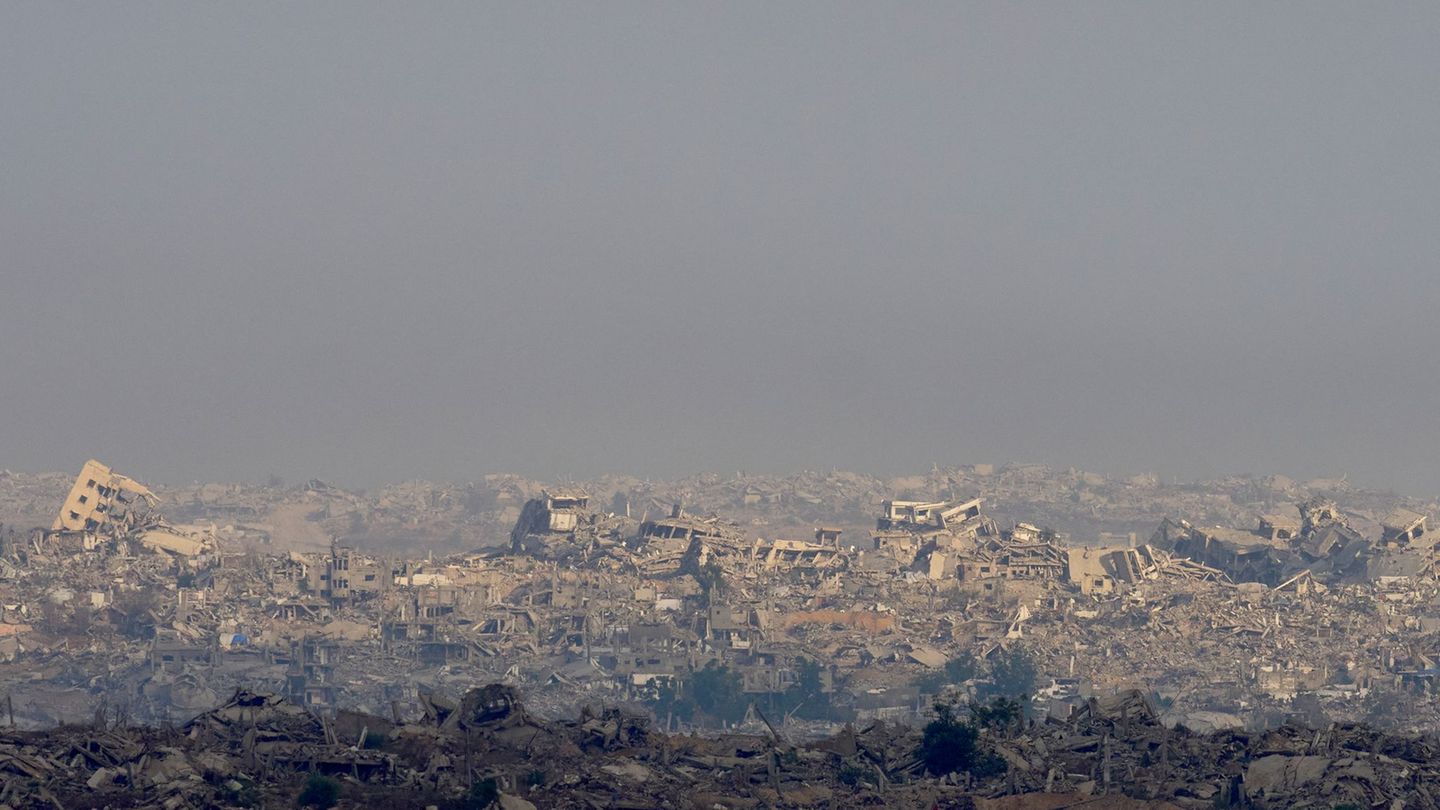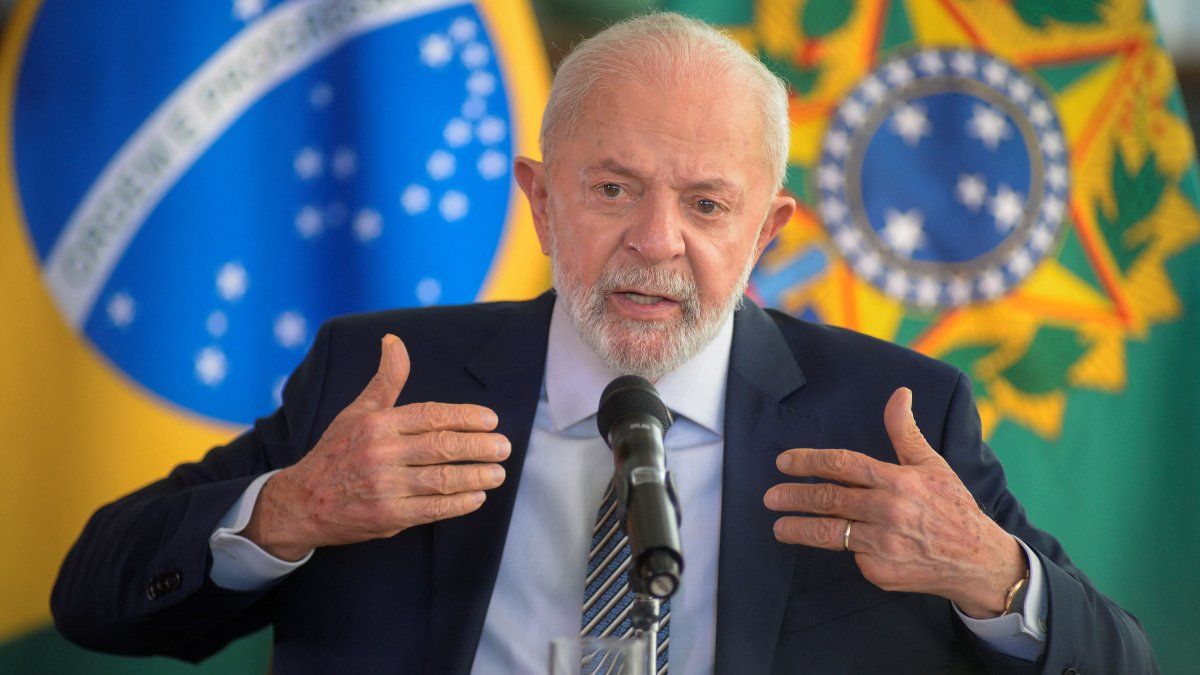Gaza war
Israel wants to take the city of Gaza: What are the consequences?
Copy the current link
Add to the memorial list
Israel expands its military operation: the security cabinet has agreed that the army should take the city of Gaza. What consequences could this step have?
Israel wants to expand his military operation in the Gaza Strip. After hours of consultations, the Israeli security cabinet decided to take the city of Gaza – possibly with the aim of taking control of the entire coastal area. The largest city in the Gaza Strip has been the target of Israeli attacks since the beginning of the war around 22 months ago. Questions and answers to the possible effects:
What are the goals of Israel?
In an explanation of the office of Prime Minister Benjamin Netanyahu, after the decision of the security cabinet, five principles to terminate the war had been said goodbye: the disarmament of Hamas, the return of all hostages – alive or dead -, the demilitarization of the Gaza strip, the military control of the coastal area by Israel and the establishment of a civil administration, which neither the Hamas should still be subject to the Palestinian Authority (PA).
In an interview with the US broadcaster Fox News before the security cabinet session, Netanyahu said that Israel wanted to take control of the entire Gaza Strip, but did not occupy the area permanently. Hamas should be liberated in order to finally hand it over to other forces. This should be forces that, like the Islamist terrorist organization Hamas, did not call for the destruction of Israel.
Media speculate that the now specific announcement of an expansion of the fights could also be part of a negotiation tactic in order to massively put Hamas under pressure in the stuck negotiations. Israeli politicians indicated such a strategy. The N12 broadcaster reported that Qatar and Egypt as well as Turkey would already put pressure on the Hamas to quickly return to the negotiating table.
What does this mean for the population in the Gaza Strip?
Destruction, rubble and misery around 22 months after the devastating Gaza war begins the picture in the coastal strip. The humanitarian situation on site is already described as catastrophic. According to the United Nations, famine also threatens in the area.
Israel’s military currently has around 75 percent of the area of the Gaza Strip. The city of Gaza is one of those parts of the coastal area that are not yet under Israeli control. About 700,000 people lived there before the war. Many people have already left the area, but it is expected that the conquest will lead to the flight of numerous other people. War acts in urban areas are considered to be particularly fatal to civilians.
The TV broadcaster N12 reported that the residents are to be evacuated in refugee camps in the center of the Gaza Strip – this should happen until the beginning of October. These camps are already overcrowded, the hygienic and health conditions there are considered to be health -hazard, repeatedly warned aid organizations of outbreaks of illness.
Already earlier hints about the intake of other areas, under the Palestinian population, fears about a new wave of flight and displacement – similar to during the war in the course of the Israeli state foundation in 1948 and during the 1967 six days.
What does that mean for the hostages?
The army leadership sees an expansion of the fights the risk that the hostages could be in danger and killed by their kidnappers should Israel’s troops approach the places where they are held. According to a report by the “Jediot Achronot” newspaper, military personally warned against penetrating deeply into the targeted areas – an expansion of the fights could lead to the “complete loss of all hostages”.
Relatives of the kidnapped people also repeatedly speak out against military attempts to exemption and instead urge an agreement to terminate the war. According to Israeli assessment, there are still 50 hostages in Gaza, 20 of whom are said to be alive.
However, Israeli media quoted an official with the words: “If we do not act now, the hostages will starve and Gaza will remain under the rule of Hamas.” Most recently, Hamas and the Palestinian Islamic Jihad (PIJ) released hideous propaganda videos of two hostages. There, German-Israeli Rome Braslavski (21) and Evjatar David (24) are emaciated and excited.
How could the international community react?
Expansion of the fighting means another escalation of the war. Most recently, international criticism of Israel’s approach has already increased massively. In Israel there is often talk of a “diplomatic tsunami” – even close allies of the Jewish state are now sharply criticizing the government in Jerusalem. Commentators fear diplomatic isolation.
Some countries are already considering sanctions against Israel in view of the catastrophic situation in Gaza. So far, Germany has been one of those countries that reject sanctions. However, the federal government still wants to decide on how to proceed in the Gaza conflict. Germany recently demanded that the humanitarian situation on site should be quickly improved. It is unclear to what extent Israel’s recent decision will influence the behavior of Germany.
What other consequences could the decision for Israel have?
Another extensive soil offensive in an urban area – even if it has so far been unclear when it could begin – also carries increased risks for Israeli soldiers. Many Israelis are already expressing the desire for the end of the war. The dismay in society about fallen soldiers this year was already great – additional losses on the Israeli side could further undermine support for the war.
In terms of domestic political, Prime Minister Netanyahu is in the question of how the Gaza Strip continues in a dilemma. His right -wing extremist coalition partners openly call for taking the entire area and the expulsion of the Palestinians. Mody members of the government are reluctant to do so. Most opposition parties vehemently reject this. Another split within the political camp could be the result.
dpa
Source: Stern
I have been working in the news industry for over 6 years, first as a reporter and now as an editor. I have covered politics extensively, and my work has appeared in major newspapers and online news outlets around the world. In addition to my writing, I also contribute regularly to 24 Hours World.




